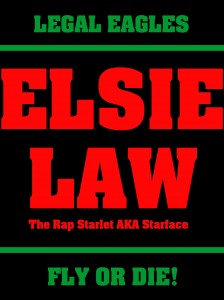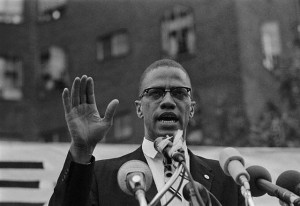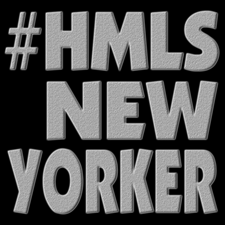“I will not let anyone walk through my mind with their dirty feet.” -Mahatma Gandhi
Quote Of The Day
Book Excerpt Of The Week: “I Know Why The Caged Bird Sings,” By: Maya Angelou
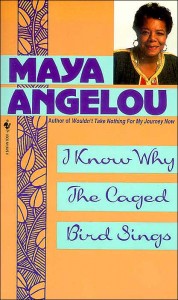 “As I ate she began the first of what we later called my ‘lessons in living.’ She said that I must always be intolerant of ignorance but understanding of illiteracy. That some people , unable to go to school, were more educated and even more intelligent than college professors. She encouraged me to listen carefully to what country people called mother wit. That in those homely sayings was couched the collective wisdom of generations.” -From, “I Know Why The Caged Bird Sings,” By: Maya Angelou
“As I ate she began the first of what we later called my ‘lessons in living.’ She said that I must always be intolerant of ignorance but understanding of illiteracy. That some people , unable to go to school, were more educated and even more intelligent than college professors. She encouraged me to listen carefully to what country people called mother wit. That in those homely sayings was couched the collective wisdom of generations.” -From, “I Know Why The Caged Bird Sings,” By: Maya Angelou
Black History Fact Of The Day
TODAY IS BUY BLACK FRIDAY
PLEASE PASS THIS ON! (EACH ONE TEACH ONE OR TWO!) THIS IS PHASE ONE ON HOW WE CAN HELP TO STRENGTHEN & EMPOWER OUR COMMUNITY:
 The 2008 not guilty verdict in the Sean Bell case evoked outrage, emotion, and debate. It is not an anomaly that the police officers involved in the Sean Bell slaying were acquitted of all charges on all counts in State Supreme Court. I could run out of ink printing the names of people who have been victimized by the inaptly named justice system.
The 2008 not guilty verdict in the Sean Bell case evoked outrage, emotion, and debate. It is not an anomaly that the police officers involved in the Sean Bell slaying were acquitted of all charges on all counts in State Supreme Court. I could run out of ink printing the names of people who have been victimized by the inaptly named justice system.
The American justice system has been especially terroristic towards the African American community. Many community members can cite historic and personal accounts to prove this. Therefore, it would be foolhardy (at the least) to turn to a system that has methodically oppressed us, and request that they free us. We can only free ourselves through extreme discipline and intelligent planning.
As a community we have been too compliant with leaders who organize ineffective, delayed reactions. The only strategy that can save us in this last hour is one that calls for a collective code of conduct that will be conducive to improving the conditions of our community, and shifting the paradigm of how we are treated by outside entities. The first step of this code of conduct should be based on economics.
The old adage of “money talks,” still reigns true in the new millennium. Any political scientist worth his or her library card will tell you that: “Economic powerlessness equals political powerlessness,” and conversely “economic power equals political power.” This means that if we continue to allow our wealth to be extracted from our community, we will remain impotent.
The power of the collective “Black Dollar” is often discussed. However, that power has been left unchanneled. Today is the day to change that. A one-time boycott is not going to bring long-term change and respect to our community. Our community has launched boycotts before. Our success and ascension will be based on what we consistently do. For this reason, we should initiate “BUY BLACK FRIDAYS.”
BUY BLACK FRIDAYS is a small step towards our community acquiring power via controlling our economics. Every Friday, people who acknowledge the injustice and oppression that the African American community has been consistently subjected to should do one of the following:
Option #1: Spend $0 on Friday
Option #2: Spend no more than $10 on Friday
Option #3: Only Shop at Black Businesses on Friday
[PLEASE NOTE THAT THE ABOVE OPTIONS CAN & SHOULD BE EXERCISED ON A DAILY BASIS. However, we can all at the very least focus on Fridays. This way we can take a collective stand and build our collective discipline. Please remember that this is only Phase 1!].
To the people who are tempted to label “BUY BLACK FRIDAYS” as racist, I say this: In the big scheme of things, this is about right & wrong, justice & injustice. The African American community is a strong, proud community that has endured the brunt of America’s iron fist. We must stop the pounding. I feel that any fair-minded individual will concur, and join in.
ANY business that is privileged to enjoy the support of the African American community MUST return that support.
I thank you in advance for your effort and dedication.
-Elsie Law AKA Starface
Quote Of The Day
Black History Fact Of The Day
Quote Of The Day
Op-Ed: What Is Success?
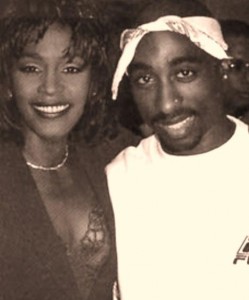 WORDS TO LIVE BY: “Don’t wear yourself out trying to get rich. Be wise enough to know when to quit.” -Proverbs 23:4
WORDS TO LIVE BY: “Don’t wear yourself out trying to get rich. Be wise enough to know when to quit.” -Proverbs 23:4
Success, and how people define and pursue it, is strongly linked to their integrity. Every right-minded person wants to be successful. However, success-markers are as varied and individualized as a person’s personal taste. The means that a person implements to reach these markers will be determined not only by their skill level and work ethic, but by their personal belief system and morals.
There are many cases where a person’s impeccable work ethic, talent, and drive is not welcomed because it is accompanied by an unbending, strict moral code. This enigmatic dilemma can occur in any industry or career field. However, it is most popularly known to occur in the field of entertainment.
In a corrupt world, the entertainment industry is a standout in the sordid playing field of debauchery. Music studios and sound stages are cluttered with hollow shells missing their souls; their ambition akin to a bull in a china shop.
Within recent history, music and entertainment fans have seen the demise of legendary artists of immense talent. Some of these artists’ talents were worthy of the artistic acclaim that they received from millions of music lovers. However, we should deeply contemplate whether the industry these extraordinary creative forces participated in was worthy of their attention, presence, and their very lives.
Watching the heartless way in which Whitney Houston’s musical colleagues and self-proclaimed “friends” literally partied under her corpse should have been a wake up call for all on-lookers. What type of people would knowingly engage in festivities beneath the dead body of any fellow human being; more or less a person many of them profess to “love?” Do we as “fans” consider this behavior acceptable?
Watching the calloused behavior of the entertainment industry’s “elite” in response to Whitney Houston’s death shattered any illusions of the type of people who comprise this unfortunately often-coveted profession.
While great talent should have great ambition, there is something that is more important, and something that should be primary. Foremost, everyone should firmly know where their boundaries are and what they will, and will not, participate in. Secondly, people have to know that it is okay to be a big fish in a small pond if that pond’s waters are pure and clear, rather than putrid and turbulent. I would rather happily sing on a street corner, than to sing in arenas via a conduit created by craftily disguised devils looking to corrupt and devour.
Be careful what you pursue, how you pursue it, and what you choose to align yourself with. All the clues are there. We have been warned!
As Always,
Lots of Love,
Elsie “Starface” Law
Book Review Of The Month: “I See Black People: The Rise and Fall of African American Owned Television and Radio” By: Kristal Brent Zook
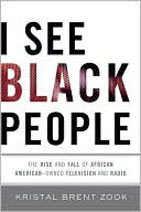 A society that doesn’t have a viable means of truthful communication isn’t much of a society. Communication is what every form of human interaction and creation is about. A large majority of our technological advances focuses on making communication speedier and more efficient. The importance of communication makes the controllers of its distribution very powerful and influential.
A society that doesn’t have a viable means of truthful communication isn’t much of a society. Communication is what every form of human interaction and creation is about. A large majority of our technological advances focuses on making communication speedier and more efficient. The importance of communication makes the controllers of its distribution very powerful and influential.
Television and radio communicates messages that are subliminal and overt, to masses of people every nanosecond of the day. But, what happens when the ownership of the conduits of message relaying is in the hands of a few? The results of that stingy type of ownership is a feeding of myopic viewpoints to the general public, and a silencing of voices that don’t have the means of widespread message-sending. What good is having the right to freedom of speech, if you don’t have a noticeable platform on which to exercise that right? This is why the dearth of ownership of television and radio stations in the hands of African Americans is such a pertinent issue for the Black community.
In, “I See Black People: The Rise and Fall of African American Owned Television and Radio,” the author, Kristal Brent Zook, explores the history of Black ownership of media corporations. She smartly does this via ten interviews with pioneering African American media moguls. These interviews are revelatory regarding what it takes to own and operate radio and television stations. The interviewees also address what it means to be an African American in the tight fisted, mostly closed shop realm of media ownership.
Through the book’s subjects renderings of their sacrifices, tribulations and triumphs, the reader is able to relate to the moguls’ passionate attempts to strive in a business that has been traditionally unwelcoming to minority ownership. The book leaves the reader aware of the many market niches that are ignored by the media big wigs. These niches are begging to be catered to, or at the very least even acknowledged.
After reading this terse and enlightening tome, I was left contemplating what the future of African American ownership will be. With all of the digital transmissions being implemented for television and radio, will the FCC be wise enough to allow savvy moguls from various ethnic groups to have an opportunity to “sit at the big table?”
Including deserving experts from a multitude of cultures in the running of media outlets will help to benefit society by providing a balance of viewpoints. Plus, for all of the number-crunchers: It would help the bottom line too. Consumers need to demand that their voices are heard in this new, digital revolution.
